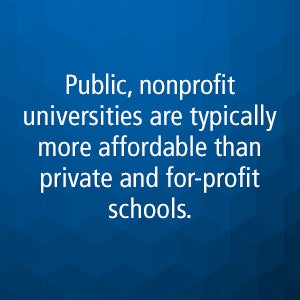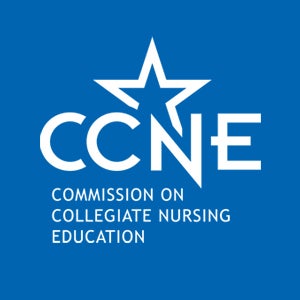Menu
All You Need to Know About RN to BSN Programs

If you're a working registered nurse, you've heard about the BSN, or Bachelor of Science in Nursing. Maybe your employer is asking (or requiring) you to earn a BSN degree. Maybe you've heard your fellow nurses talking about RN to BSN programs, and you're curious about them. Perhaps it's time to complete your bachelor's degree for the sense of accomplishment you gain from having that level of higher education.
Regardless of why you might go back for a BSN, there is a lot to consider as you weigh the options. Here we answer some of the most common questions about RN to BSN programs and the degree itself.
What Is a BSN?

The Bachelor of Science in Nursing (BSN) is one educational level above an Associate Degree in Nursing (ADN). Students complete both general education courses and nursing courses to earn the degree. RNs study advanced subjects such as healthcare policy and research, as well as disease prevention and health assessment across the life span. A BSN can also help you build the decision-making and leadership skills required to move up to supervisory and management roles.
What Is an RN to BSN Program?
An RN to BSN is a bridge program for licensed registered nurses who have an either a diploma or an associate degree in nursing and are looking to obtain their bachelor's degree in nursing.
The University of Texas at Arlington online RN to BSN program is designed for working nurses, offering a flexible and affordable way to earn the degree.
Do RN to BSN Programs Require Prerequisite Courses?
It depends on your program and your previous college coursework. A bachelor's degree requires a minimum of 120 credit hours, and general education courses in math, English and history sometimes have prerequisites.
You can see a full list of UTA's required gen ed credits in the courses section of the RN to BSN program site. Prerequisites can often be completed concurrently with your nursing courses (these are also called co-requisite courses).
Why Do Employers Prefer BSN-Prepared Nurses?
Many healthcare employers prefer to hire RNs with a BSN degree because research correlates BSN preparation with improved patient outcomes and lower care costs. Most healthcare systems also continue to follow standards set by the National Academies of Medicine and other professional organizations, which call for hiring more BSN RNs and helping ADN nurses earn the degree.
Employers often require it for career progression as well, due to the advanced critical thinking and leadership skills BSN graduates bring to their work. Candidates for nursing management roles in magnet and U.S. Veterans Administration hospitals must have the degree, for example.

—Doris Blacksher, RN to BSN online graduate
What Will I Learn In an Online RN to BSN Program?
New nurses and those with decades of experience can benefit from the learning experience an online RN to BSN program provides. Coursework aligns with American Association of Colleges of Nursing (AACN) essential standards for RN education, covering subjects from patient care to career preparation.
Coursework in UTA's online RN to BSN program addresses evidence-based practice, holistic assessment, best practices in care for different populations, how to lead and manage and more. Below, graduates discuss what they learned in the program.
—Gina Adair, UTA RN to BSN online graduate


—Chris Chirdo, UTA online RN to BSN graduate
—Rose Garcia, UTA RN to BSN online graduate


—Loretta Hise, UTA online RN to BSN graduate
—Brenda White, UTA online RN to BSN graduate


—Jessica Prince, UTA online RN to BSN graduate
What's the Career Outlook for RN to BSN Graduates?
The U.S. Bureau of Labor Statistics projects that BSN-prepared RNs will see steady job growth through 2031. The ongoing nursing shortage in America and the number of retirements will continue to create new opportunities for RNs with a bachelor's degree, from specialized nursing roles to management and leadership.
The employment outlook is also positive for RNs earning a BSN as the first step toward a master's degree, especially those considering a career as an advanced practice registered nurse. BLS notes that demand for APRNs such as nurse practitioners could rise as much as 40% through 2031.
Regardless of your career ambitions, a BSN can help you advance more easily in your current organization. It can also give you more freedom when you're ready to change employers, qualifying you for new roles, better pay and excellent signing bonuses.
—Doris Blacksher, RN to BSN online graduate


Can I Earn More With a BSN?
Yes. Earning a BSN can make you eligible for a pay bump in your current role, and lead to specialized nursing assignments or management positions that offer higher salaries. For example, BSN-prepared RNs tend to have better access to great-paying jobs in areas such as nursing informatics, oncology and gerontology, as well as neonatal, post-operative and critical care. Travel nurses with a BSN often command some of the highest pay rates, given current nursing shortages.
The degree is also required for Chief Nursing Officers, and as Becker's Hospital Review reports, RNs can even progress from the bedside to top executive roles over the course of their career. Many of the best-paying administrative jobs for RNs outside of hospitals and healthcare systems also require a BSN, or offer higher salaries for nurses with the degree. This includes jobs in the insurance and pharmaceutical industries, rehabilitation and in-patient psychiatric clinics, hospice organizations and long-term care facilities.
How Long Does an RN to BSN Program Take?

Program completion time will vary for each student. If you don't need any general education courses, you can complete the UTA online RN to BSN program in as few as nine months. If you need pre-reqs or co-reqs, it will take a little longer. Keep in mind that you can take your co-reqs at UTA online as well. All online courses in the program are accelerated. Nursing courses run from 5 to 8 weeks in length.
Can I Earn a BSN While Working Full Time?
Online RN to BSN programs are tailored to the needs of working nurses. Studying online gives busy RNs the flexibility to complete coursework whenever it's convenient, whether that's on a lunch break, after a shift or during days off.
Learning modules are designed to help students move through course content quickly, with weekly deadlines that give students the option to plan study time around work, family time and activities.
—Shanise McKelvey, UTA online RN to BSN graduate
How Much Does an RN to BSN Program Cost?

Tuition rates vary widely from school to school. Private universities and colleges tend to be the most expensive, while state schools are typically more affordable. Some for-profit schools advertise low tuition rates, but they may charge students more in fees, or lack proper accreditation.
UTA is a public, nonprofit university. Tuition for nursing courses in the online RN to BSN program is $257 per credit hour and $8,995 total, including fees. Tuition for general education courses is $362 per credit hour.
Will I Have to Pay Out-of-State Tuition?
Not at UTA. All online students, whether you're in California, Texas, New York, or one of the other states where the program is available, pay the same low tuition rate.
How Do Online Students Connect With Professors?
Online students have a number of options for communicating with instructors. In addition to email and video chat, many professors are available to meet by phone if needed or check in via text. You'll also interact with classmates on discussion boards, and instructors often join the conversation there. Regardless of your work schedule, it's easy to connect with professors online.
In addition to faculty, the online UTA RN to BSN program offers academic coaches who work directly with students and help them stay engaged and progressing through their courses.
—Jessica Prince, UTA online RN to BSN graduate

What is Accreditation and Why Does it Matter for Nursing Programs?

Accreditation is an independent review process that universities and their degree programs go through to ensure students receive a high-quality education that is also workforce-relevant. Accreditors can look at everything from faculty qualifications and teaching methods to financials and graduation rates.
Earning a degree from an accredited nursing program is important for RN to BSN students, because it demonstrates to employers that your education was rigorous and you have the right qualifications as an RN. Many employers will only hire graduates from accredited programs and most graduate schools require MSN applicants to have an accredited BSN degree.
All nursing degree programs in UTA's College of Nursing and Health Information are accredited by the Commission on Collegiate Nursing Education (CCNE).
Are Online Students Eligible for Financial Aid?
As long as your online program or university is accredited, you can apply for federal financial aid by completing the Free Application for Student Aid (FAFSA). Your eligibility will depend on factors such as your program costs and income.
Some employers offer tuition assistance or reimbursement as well. Just check with the human resources department at work to learn more.
Why Choose UTA for an Online RN to BSN Program?
UTA's College of Nursing and Health Innovation is recognized as a pioneer in providing high-quality online nursing education. The accelerated online RN to BSN program launched in 2008 and now consistently ranks among the top programs in the nation.
UTA offers:
- CCNE-accredited nursing programs
- Top-tier faculty committed to helping online students succeed
- Ongoing research and scholarship that informs teaching practices
- The same RN to BSN curriculum online and on-campus
- The same low tuition rate no matter where you live
UTA online RN to BSN students also benefit from a strong alumni network after graduation and are well-prepared for graduate school in nursing.

—Rebecca Ventura, UTA online RN to BSN graduate